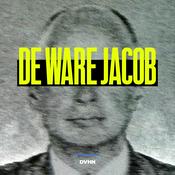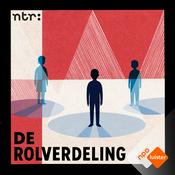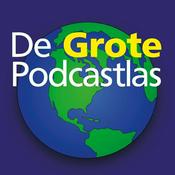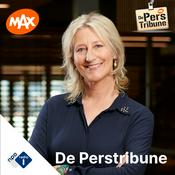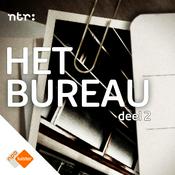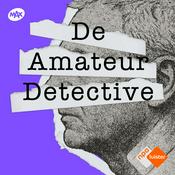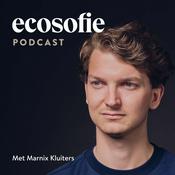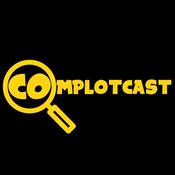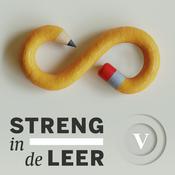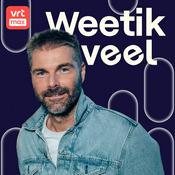103 afleveringen
Lingo Bingo at the India AI Summit w/ Karen Hao, Joan Kinyua, Chenai Chair, and Rafael Grohmann
13-2-2026 | 44 Min.The AI Impact Summit in India is just a couple of days away and we are ready to drown in vague terms that kinda describe AI, and definitely obscure power. Let’s talk about how to reframe those terms…
More like this: The Vaporstate: All Hail Scale at the AI India Summit
We’ve partnered with the AI Now Institute and Aapti Institute to conduct twelve interviews based around the biggest and baddest terms we feel have been co-opted by global summits such as this one. This week we have Karen Hao discussing what it means to be ‘data rich’; Rafael Grohmann on the word ‘sovereignty’ and how it has a hundred definitions; Joan Kinyua on ‘human capital’, a key part of any AI development supply chain; and Chenai Chair, who will discuss ‘linguistic diversity’ — what it is, and what it isn’t.
These are just the best parts of the interviews — if you want to go deep and see each of these interviews in full, head to our Youtube channel now.
Further reading & resources:
More about Rafael Grohmann — Assistant Professor of Media Studies with focus on Critical Platform and Data Studies at the University of Toronto
More about Karen Hao — investigative journalist and author of Empire of AI
More about Chenai Chair — director of the Masakhane African Languages Hub
More about Joan Kinyua — president of the Data Labellers Association
More on the Due Diligence Act
More about the amendment to the Business Laws Act 2024
What does the notion of “sovereignty” mean when referring to the digital? — Stephane Couture and Sophie Toupin
Buy The Oracle for Transfeminist Technologies by Sasha Costanza-Chock, Joana Varon, and Clara Juliano
Watch this week’s interviews in full on Youtube (link to playlist of interviews)
**Subscribe to our newsletter to get more stuff than just a podcast — we run events and do other work that you will definitely be interested in!**
Post Production by Sarah Myles | Pre Production by Georgia Iacovou- In The Vaporstate, we have traveled to Brazil, India, and the UK. But what does this look like as a global movement of nations and companies evangelising technology as the key to solving all problems, everywhere?
More like this: Paris Post-Mortem (live)
For our final instalment of The Vaporstate, Alix is joined by Astha Kapoor and Amba Kak to reflect on the series, and discuss the upcoming AI Action Summit in India. This is the first time this summit is being hosted by a global majority country — will this create new opportunities for civil society to have a say, or is this just yet another chance for tech companies to whisper magic AI spells into the ear of government?
The end of The Vaporstate series marks the beginning of another series, made in partnership with AI Now and Aapti Institute: in the run up to the AI Summit, we want to rethink the terms that have been co-opted by government and industry. Terms like ‘sovereignty’, ‘AI for good’, and ‘human capital’. We interviewed twelve experts who unpack how these terms are framed in global summits like this one — watch this space for conversations with Naomi Klein, Meredith Whitaker, and Karen Hao, to name a few.
Further reading & resources:
Mark Carney’s speech at Davos January 2026
Watch the first batch of interviews discussing co-opted terms used in and around the upcoming summit
**Subscribe to our newsletter to get more stuff than just a podcast — we run events and do other work that you will definitely be interested in!**
Post Production by Sarah Myles | Pre Production by Georgia Iacovou - What does US tech billionaire Larry Ellison get when he gives the Tony Blair Institute hundreds of millions of dollars?
More like this: The Vaporstate: ID in India
In our third installment of The Vaporstate, we are joined by two journalists from Lighthouse Reports, who tell all about their investigation into the questionable relationship between Oracle founder Larry Ellison, the Tony Blair Institute, and the current Labour government. What is the Tony Blair Institute and why did Ellison give them millions of dollars? What does any of this have to do with national IDs and NHS data? And if you’re a government official somewhere around the world, and TBI comes knocking to sell you an AI future what you should do…?
Further reading & resources:
Britain must treat tech giants like nation states — The Times, 2024
Backlight — Lighthouse’s monthly podcast
Blair and the Billionaire — Lighthouse Reports 2025
Inside The Tony Blair Institute — Lighthouse journalists Peter Geoghegan and May Bulman are interviewed by The New Statesman
Do you have a story that you think is missing from public discourse? Here’s how to get in touch with Lighthouse
Questions Alix proposed for the Sundance panel — as mentioned in the intro.
**Subscribe to our newsletter to get more stuff than just a podcast — we run events and do other work that you will definitely be interested in!**
Post Production by Sarah Myles | Pre Production by Georgia Iacovou - What happens when the very way you prove who you are is stolen by someone else? And what happens when a country stands up to Meta and builds their own.
More like this: The Vaporstate: ID in India
For episode two of The Vaporstate, Alix is joined by Rafael Zanatta and Luã Cruz. Rafa walks us through the incredible story of how his mom’s digital ID was stolen and a clever bank teller stopped someone from halfway across the country from stealing her savings. Luã ****shares the geopolitical battles that prevented a Meta takeover of Brazilian peer-to-peer payment and the roll out of a frictionless financial transaction system called PIX.
Further reading & resources:
Brazil Has The World’s Most Accessed Citizen Services Platform — Forbes, March 2024
More about Data Privacy Brazil
The Tyranny of Convenience by Tim Wu — New York Times, 2018
Works by South Korean philosopher Byung-Chul Han
Lula pushing back against Trump’s tariffs — AP, September 2025
More about The Brazilian Institute for Consumer Protection
**Subscribe to our newsletter to get more stuff than just a podcast — we run events and do other work that you will definitely be interested in!**
Post Production by Sarah Myles | Pre Production by Georgia Iacovou - Our first exploration of The Vaporstate takes us to India, home of Aadhaar: a mammoth digitisation project that charts a path from technical solution for public service delivery, through mission creep and popular opposition, to a knotty but inescapable part of Indian existence today.
More like this: Is Digitisation Killing Democracy? w/ Marietje Schaake
Joining Alix for part one of The Vaporstate is Mila Samdub, Astha Kapoor, and Usha Ramanathan. Together they discuss the conception of Aadhaar, India’s key piece of digital public infrastructure, and how it morphed from a simple digital ID to something that unifies payments, phone plans, and biometrics.
Further reading & resources:
More about Usha Ramanathan — legendary lawyer and activist who has been pushing back on the Aadhaar programme for over a decade
More about Astha Kapoor — co-founder of the Aapti Institute
More about Mila Samdub — designer, writer, and CyberBRICS Fellow at the Center for Internet and Society, FGV Rio
Computer-vision research powers surveillance technology — by Abeba Birhane et al, Nature Journal
Aadhaar 2.0 workshop
Walmart Takes Ownership of PhonePe from Flipkart — The Times of India, 2022
Walmart invests $200 million in Indian mobile payments giant PhonePe — TechCrunch, 2023
Google launches India mobile payments app Tez — BBC, 2017
Identity Verification Standards in Welfare Programs: Experimental Evidence from India — Karthik Muralidharan et al, National Bureau of Economic Research, 2021
Aadhaar: Costs of Digital Red Tape — Reetika Khera & Amod Moharil, Economic & Political Weekly, 2024
Overload, Creep, Excess – An Internet from India — Nafis Hasan et al, Institute of Network Cultures, 2022
Aadhaar: A Biometric History of India's 12 Digit Revolution — Shankkar Aiyar, Westland, 2017
**Subscribe to our newsletter to get more stuff than just a podcast — we run events and do other work that you will definitely be interested in!**
Post Production by Sarah Myles | Pre Production by Georgia Iacovou
Meer Maatschappij & cultuur podcasts
Trending Maatschappij & cultuur -podcasts
Over Computer Says Maybe
Technology is changing fast. And it's changing our world even faster. Host Alix Dunn interviews visionaries, researchers, and technologists working in the public interest to help you keep up. Step outside the hype and explore the possibilities, problems, and politics of technology. We publish weekly.
Podcast websiteLuister naar Computer Says Maybe, Teun en Gijs vertellen alles en vele andere podcasts van over de hele wereld met de radio.net-app

Ontvang de gratis radio.net app
- Zenders en podcasts om te bookmarken
- Streamen via Wi-Fi of Bluetooth
- Ondersteunt Carplay & Android Auto
- Veel andere app-functies
Ontvang de gratis radio.net app
- Zenders en podcasts om te bookmarken
- Streamen via Wi-Fi of Bluetooth
- Ondersteunt Carplay & Android Auto
- Veel andere app-functies


Computer Says Maybe
Scan de code,
download de app,
luisteren.
download de app,
luisteren.



